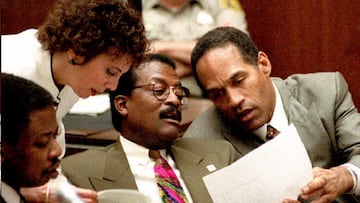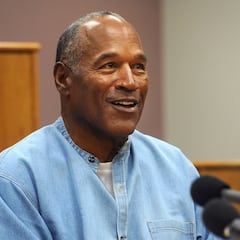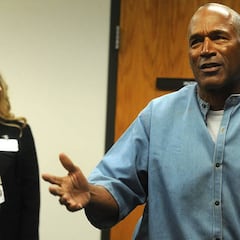Who were the lawyers on O.J. Simpson’s defense team in the double-murder trial? How much money did they make?
Known as the ‘Dream Team’, the legal defence’s success, culminating in Simpson’s acquittal, cemented their place in legal history.


The O.J. Simpson murder trial, a captivating spectacle that transfixed the nation in 1995, was defined not only by the shocking nature of the crime but also by the formidable defense team assembled for Simpson. This group, dubbed the “Dream Team,” was a collection of legal heavyweights known for their courtroom prowess and celebrity clientele. But beyond their reputations, shrouds of secrecy surround just how much they were paid for their representation.
Leading the charge was Robert Shapiro, a flamboyant lawyer known for handling high-profile cases. Johnnie Cochran Jr., another star attorney, would eventually take the reins, delivering the now-legendary closing argument highlighting the infamous “glove doesn’t fit” narrative. F. Lee Bailey, a legal strategist with a long and storied career, undoubtedly commanded a premium price for his expertise.
The team wasn’t without its unique elements. Robert Kardashian, a close friend of Simpson, reportedly worked pro bono, while Alan Dershowitz, a Harvard Law professor specialising in constitutional law, was also involved. Carl E. Douglas focused on exposing potential racial bias within the case, while Shawn Holley, a rising star, handled pre-trial motions. Finally, Barry Scheck and Peter Neufeld, specialists in DNA evidence, were brought in to combat the prosecution’s case.
How much did this team cost?
Related stories
Despite the star power and the magnitude of the trial, the exact financial compensation for the Dream Team remains a mystery. Estimates range from a collective $10 million to a staggering $30 million, but concrete figures are elusive for several reasons.
Attorney-client privilege shields communications between lawyers and their clients, making details of fee agreements confidential. Additionally, confidentiality agreements were likely in place, further burying the financial details. Finally, the varying roles and billing structures within the team make pinning down a single, definitive figure nearly impossible.

